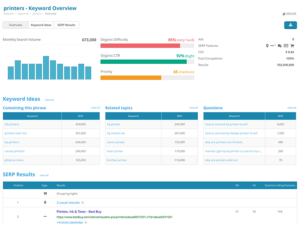Are you looking to expand your online presence and attract more visitors from China? In today’s competitive digital landscape, having a high search engine ranking is crucial for success. This SEO optimized page will guide you through the key strategies and best practices to improve your keyword ranking in China, ensuring increased visibility and traffic to your website.

Understanding China’s Search Engine Landscape
Before diving into SEO techniques, it’s essential to familiarize yourself with the search engine landscape in China. While Google dominates in many parts of the world, including Western countries, it’s important to note that it has limited reach in China. Baidu, China’s leading search engine, captures the majority of search traffic, followed by other popular platforms like Shenma and Sogou.
Keyword Research and Selection
Effective keyword research forms the foundation of any successful SEO campaign. To target the Chinese market, it’s crucial to identify the right keywords that resonate with your audience. Here are a few tips:
- Localize your keywords: Use tools like Baidu Keyword Planner, Sogou Index, or Shenma Index to research popular Chinese keywords related to your industry. Localizing your keywords ensures relevancy and better visibility.
- Consider long-tail keywords: Chinese users often use longer search queries. Incorporating relevant long-tail keywords in your content helps you target specific user intents and improve your chances of ranking higher.
- Analyze competitor keywords: Study your competitors’ websites and the keywords they are targeting. Identify the gaps and opportunities to differentiate your content and capture more targeted traffic.
Website Optimization for Chinese Search Engines
Once you have identified the right keywords, it’s time to optimize your website for Chinese search engines. Here are some essential on-page optimization techniques:
- Chinese language content: Create high-quality, original content in Simplified Chinese. Localize your website by translating all elements, including meta tags, URLs, alt tags, and image descriptions.
- Optimize meta tags: Craft compelling meta titles and descriptions, incorporating your primary keywords. Keep them concise, around 70 characters for titles and 150 characters for descriptions.
- Mobile-friendly design: China has a large mobile user base, so ensure your website is mobile-friendly and offers a seamless browsing experience across different devices.
- Fast-loading pages: Page loading speed is crucial for user experience and search engine ranking. Optimize your website’s performance by compressing images, minifying CSS and JavaScript, and utilizing content delivery networks (CDNs).
- Internal linking: Implement an effective internal linking structure to help search engines discover and index your content. Link relevant pages using optimized anchor text.
Building Quality Backlinks
Backlinks play a significant role in SEO, indicating the authority and relevance of your website. Here are some tips for acquiring quality backlinks in the Chinese context:
- Local directories: Submit your website to prominent Chinese directories, industry-specific directories, and local citation websites to gain authoritative backlinks.
- Chinese social media: Leverage popular Chinese social media platforms like Weibo, WeChat, and Douyin to promote your content and engage with your target audience. Sharing your content on these platforms can lead to organic backlinks.
- Influencer collaborations: Collaborate with influential bloggers, key opinion leaders (KOLs), or industry experts in China to create content or generate mentions that can generate valuable backlinks.
Continuous Monitoring and Optimization
SEO is an ongoing process, and continuous monitoring and optimization are essential for maintaining and improving your keyword rankings. Here are a few practices to follow:
- Regular keyword tracking: Monitor your keyword rankings using SEO tools and analytics platforms. Identify fluctuations and adjust your SEO strategies accordingly.
- Content updates: Keep your website’s content fresh and up-to-date. Regularly publish informative articles, blog posts, or industry news that resonate with your target audience.
- User experience enhancement: Prioritize user experience by analyzing user behavior metrics and making necessary improvements to your website’s navigation, layout, and overall usability.
- Stay updated with algorithm changes: Stay informed about search engine algorithm updates, particularly those specific to Baidu and other Chinese search engines. Adapt your SEO strategies accordingly to ensure compliance and optimal performance.
By implementing these SEO techniques and consistently monitoring your progress, you can significantly improve your keyword ranking in China, expand your online visibility, and attract a larger audience to your website. Remember, SEO is a long-term investment, so stay patient and persistent to achieve sustainable results in the Chinese market.
Thanks for dropping by rankersparadise